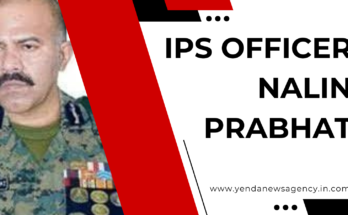
Imphal May 21 , 2024 Imphal By Banti Phurailatpam
Contents
How Experts Figure What to Focus On in 2024
In an era characterized by rapid technological advancements and an overwhelming influx of information, understanding how experts figure what to focus on has become increasingly important. In 2024, the ability to discern priorities and make informed decisions is critical for success in any field. This article delves into the methods and strategies used by experts to determine their focus, providing insights that can be applied to both professional and personal life.
Understanding the Importance of Focus
To understand how experts figure what to focus on, it’s essential to recognize why focus is so crucial. In 2024, distractions are ubiquitous, ranging from constant notifications on our devices to the endless stream of information available online. Focus allows individuals to channel their energy and resources towards what truly matters, leading to higher productivity and better outcomes. Experts have mastered the art of filtering out the noise and honing in on key tasks and objectives.
Setting Clear Goals
One of the foundational principles in how experts figure what to focus on is goal-setting. Experts begin by defining clear, specific, and measurable goals. These goals provide a roadmap, guiding their actions and decisions. In 2024, the SMART criteria—Specific, Measurable, Achievable, Relevant, and Time-bound—remain a popular framework for setting goals. By establishing well-defined objectives, experts can maintain a laser focus on what needs to be accomplished, avoiding the pitfalls of aimlessness.
Prioritisation Techniques
Prioritisation is another crucial aspect of how experts figure what to focus on. With numerous tasks and responsibilities vying for attention, knowing what to tackle first is vital. Experts often use prioritisation techniques such as the Eisenhower Matrix, which categorises tasks into four quadrants based on urgency and importance. This method helps them focus on tasks that are both important and urgent, while delegating or eliminating those that are not.
The Eisenhower Matrix
The Eisenhower Matrix, named after former U.S. President Dwight D. Eisenhower, is a powerful tool in how experts figure what to focus on. It divides tasks into four categories:
- Urgent and Important: Tasks that require immediate attention and are crucial for long-term goals.
- Important but Not Urgent: Tasks that are critical but can be scheduled for later.
- Urgent but Not Important: Tasks that require immediate attention but do not significantly impact long-term goals. These are often distractions that can be delegated.
- Not Urgent and Not Important: Tasks that have little value and can be eliminated.
By using this matrix, experts can systematically address tasks that will have the most significant impact on their objectives.
Leveraging Technology
In 2024, technology plays a pivotal role in how experts figure what to focus on. Tools such as project management software, time-tracking apps, and AI-driven analytics provide valuable insights and streamline the process of prioritisation. These technologies help experts track their progress, allocate resources efficiently, and adjust their focus based on real-time data.
AI and Machine Learning
Artificial Intelligence (AI) and machine learning are revolutionising how experts figure what to focus on. These technologies analyse vast amounts of data to identify patterns and trends, offering predictive insights that inform decision-making. For instance, AI can highlight which projects are likely to yield the highest returns, allowing experts to prioritise accordingly.
Continuous Learning and Adaptation
A key component of how experts figure what to focus on is the commitment to continuous learning and adaptation. The landscape in any field can change rapidly, and staying informed about the latest developments is crucial. Experts invest time in ongoing education, whether through formal courses, industry conferences, or self-study. This commitment ensures they are always equipped with the knowledge needed to make informed decisions.
Feedback Loops
Incorporating feedback loops is an effective strategy in how experts figure what to focus on. By regularly reviewing outcomes and seeking feedback from peers and mentors, experts can refine their focus and improve their strategies. This iterative process of evaluation and adjustment helps them stay aligned with their goals and adapt to changing circumstances.
Mindfulness and Mental Clarity
Maintaining mental clarity is another essential aspect of how experts figure what to focus on. Practices such as mindfulness and meditation help experts manage stress and maintain a clear, focused mind. In 2024, the importance of mental well-being is increasingly recognised, and many experts incorporate these practices into their daily routines to enhance their ability to focus.
The Role of Mindfulness
Mindfulness, the practice of being fully present in the moment, is a powerful tool in how experts figure what to focus on. It helps reduce mental clutter and increases awareness of what truly matters. By practising mindfulness, experts can improve their concentration and make more deliberate, focused decisions.
The Power of Delegation
Understanding how experts figure what to focus on also involves recognising the power of delegation. Experts know that they cannot do everything themselves and are adept at identifying tasks that can be delegated to others. This allows them to concentrate on high-impact activities that align with their strengths and expertise.
Effective Delegation
Effective delegation is a skill that requires trust and communication. Experts delegate tasks to team members who have the skills and capacity to handle them, providing clear instructions and expectations. This not only frees up their time but also empowers their team, fostering a collaborative environment.
Conclusion
In 2024, the ability to focus amidst a sea of distractions is a defining characteristic of successful individuals. Understanding how experts figure what to focus on involves setting clear goals, prioritising tasks, leveraging technology, committing to continuous learning, maintaining mental clarity, and effectively delegating. By adopting these strategies, anyone can enhance their ability to focus and achieve their objectives. Whether you are a professional seeking to advance your career or an individual aiming to improve personal productivity, these insights provide a roadmap to success.




